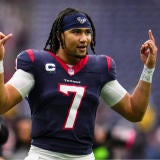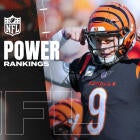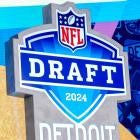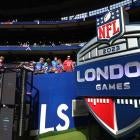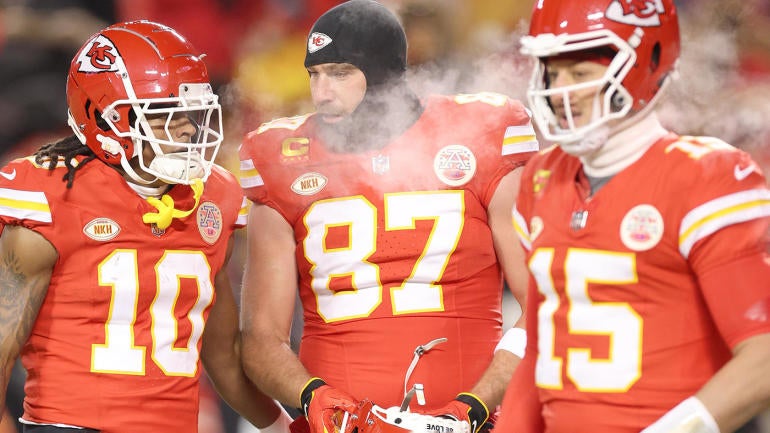
The final matchup of divisional-round weekend is a very familiar one: For the third time in four seasons, the Buffalo Bills and Kansas City Chiefs will meet in the playoffs.
This is the first time that game will take place in Buffalo, though, as the Chiefs are headed on the road for a postseason contest for the first time in the Patrick Mahomes era. The Bills went into Kansas City and beat the Chiefs earlier this season, the first win in what has become a six-game winning streak.
Now these rivals will meet again on Sunday, with a trip to the conference championship on the line. So, which of these teams will advance to the AFC title game? We'll find out soon enough. Before we break down the matchup, here's a look at how you can watch the game.
How to watch
Date: Sunday, Jan. 21 | Time: 6:30 p.m. ET
Location: Highmark Stadium (Orchard Park, New York)
TV: CBS | Streaming: Paramount+
Follow: CBS Sports App
Odds: Bills -2.5, O/U 45.5 ( via Sportsline consensus odds)
When the Chiefs have the ball
The Chiefs finally put together a good offensive game last week against the Dolphins. They racked up 409 yards on Miami, their most since Week 7. They scored on six of their nine non-clock-killing drives, and gained more than 60 yards on four of them. So even while they went just 2 for 6 in the red zone, they won the game pretty handily. And that was against a Miami defense that had been playing really well toward the end of the season.
The Bills' defense, similarly, has played quite well over the second half of the year after experiencing a lull around midseason, when it was besieged by injuries.
The main difference between the Miami defense that Kansas City moved the ball on with relative ease last week, and the Buffalo defense it will face this week, is that the Dolphins were without each of their top three edge rushers (Jaelan Phillips, Bradley Chubb and Andrew Van Ginkel) due to injuries, and thus were unable to get any pressure on Patrick Mahomes. Mahomes faced his sixth-lowest pressure rate of the season, per Tru Media, and was able to hold the ball for an average of 3.13 seconds before throwing it. That's nearly three-tenths of a second longer than the league average, which doesn't sound like much, but is a massive difference given the tiny margins between a sack and a completed pass.
How well this Kansas City offensive line holds up against Greg Rousseau, Leonard Floyd, Von Miller and the rest of the pass-rushing group up front will be perhaps the single-most important factor in determining the outcome of this game. Buffalo finished the season 10th in pressure rate, and because his pass-catchers were so unreliable this season, Mahomes had his worst numbers under pressure of his career: He went just 91 of 185 for 1,132 yards, five touchdowns and eight interceptions. His 6.1 yards per attempt were a career low, his touchdown and interception rates were career worsts, his explosive-play rate was a career worst and he took sacks while under pressure at the second-highest rate of his career.
If Mahomes has time to throw, the Chiefs have some advantages over the middle of the field, where Rashee Rice and Travis Kelce do most of their work. The Bills are incredibly banged up in the middle of their defense, and especially at linebacker. They play a lot of zone coverage, so those players and their safeties end up covering the middle of the field most often. The Bills were very good against passes to the middle during the regular season (second in FTN's DVOA), but with linebacker Terrel Bernard and slot corner Taron Johnson both questionable (and the former not having practiced all week), and safety Taylor Rapp and outside corner Christian Benford both out, things are going to change in the middle of the defense.
Buffalo's run defense was only average this season, checking in 17th in DVOA and 31st in yards after contact allowed per attempt, 23rd in explosive run rate and 26th in the share of carries they allowed to gain 5 or more yards. Having DaQuan Jones back in the middle of the defense helps on those fronts -- especially against a team like Kansas City, whose strength along the offensive line is up the middle. Isiah Pacheco averaged more than 3 yards per carry after contact this season, but he didn't play in K.C.'s loss to the Bills, when Clyde Edwards-Helaire and Jerick McKinnon combined for only 58 yards on 15 carries.
When the Bills have the ball
This side of the matchup is much different than it has been in the past. Not only are the Bills a much different offense (more run heavy, targets less concentrated), but the Chiefs now have one of the best defenses in the NFL, rather than the type of unit they've typically brought into expected shootouts against Buffalo.
The one thing that hasn't changed, though, is that the Bills' degree of success is likely to depend almost entirely on Josh Allen's ability to do his Superman routine while avoiding back-breaking interceptions.
Kansas City's pass coverage was quite sticky throughout this season, with the Chiefs finishing fifth in FTN's pass defense DVOA. Opponents averaged the fifth-fewest EPA/dropback, per Tru Media, as well as the league's lowest explosive pass rate. Meanwhile, Kansas City got pressure on 39.2% of dropbacks (ninth in the NFL) and picked up a sack on 9.3% (first).
The Chiefs sent blitzes more often than all but four other teams, and they played man coverage at the NFL's fifth-highest rate. Both of those things can either work for or against Allen. If Stefon Diggs, Khalil Shakir and Dalton Kincaid can in quickly on their routes, Allen has the requisite arm strength to fit the ball into any window, and the size and toughness to wait until the last possible second to get rid of the ball before doing so. If they're able to catch on the move, there should be ample opportunity for yards after the catch. And if Allen is able to evade the rush, as we have seen him do so many times before, there should also be room for him to make plays with his legs, either as a runner or on scramble-drill passes.
If L'Jarius Sneed, Trent McDuffie and Kansas City's linebackers can stay stuck to those receivers, though, and if the pass rush is able to maintain rush-lane integrity and box Allen into the pocket until it collapses on him, that would obviously pose significant problems for Buffalo's offense. (It will also be interesting to see if Sneed shadows Diggs, or if the Chiefs are OK matching up with any defensive back.) Much like on the other side of the ball, a massive factor here will be how well the offensive line -- particularly on the interior, against Chris Jones -- in front of Allen can hold up, and whether he's able to make throws in rhythm or has to constantly freelance all night.
As previously mentioned, the Bills have gone a bit more run-heavy this year than they have in the past. James Cook is an explosive threat out of the backfield, and obviously Allen is one of the most unique rushing threats to ever play the quarterback position. The Bills in the past have been more willing to use Allen as a runner both in the playoffs and particularly against the Chiefs, and this game provides another excellent opportunity for them to do just that -- especially in short yardage. The Bills should try to pull every lever they can to create an advantage, and Allen's ability to both convert tough yards and create chunk gains with his legs are one of the biggest such levers they have.
Prediction
Buffalo beat Kansas City earlier this season, and gets to play this game at home. Those are advantages, but the state of the team's injury-depleted defense leads me to believe the Chiefs will be able to move the ball with more success than they did last time around, and in a close playoff game, I'll always defer to Andy Reid and Patrick Mahomes until someone beats them. Pick: Chiefs 23, Bills 21







